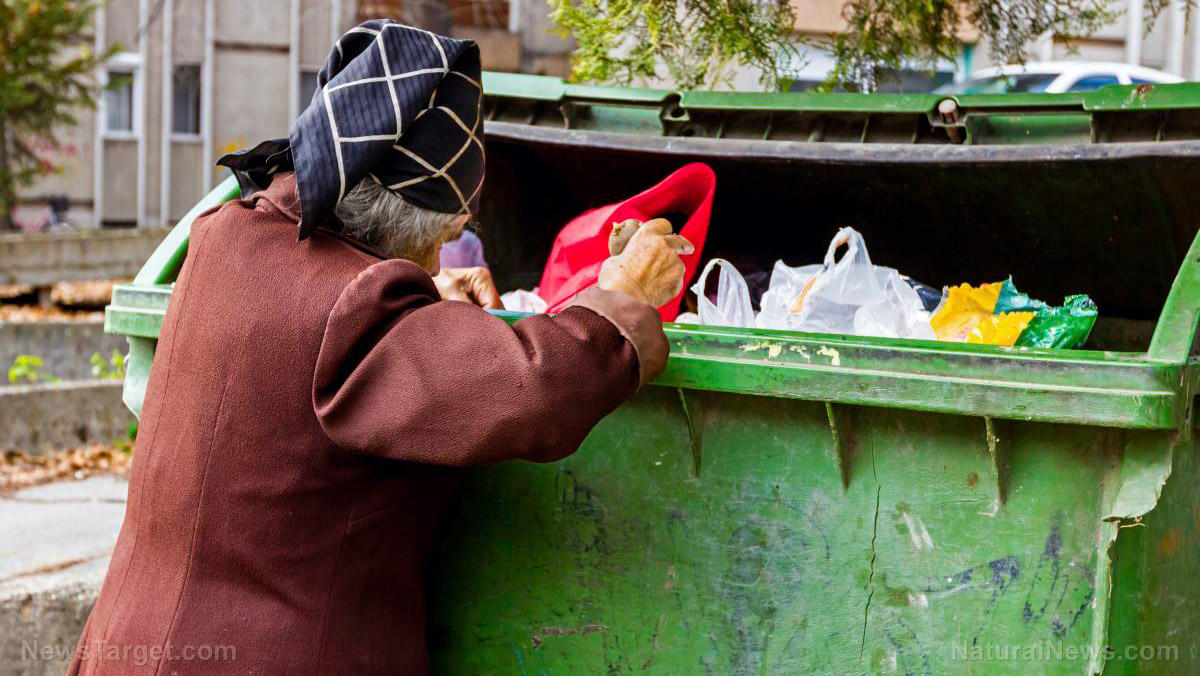Rising food prices driving more Filipinos to eat scavenged “pagpag” meat from dumpsters
As food inflation continues to take a toll around the world, the unsettling practice of eating recycled food is becoming more popular in places like the Philippines, where food prices have grown to shocking levels. In the western Pacific island nation, the impoverished masses are habitually consuming scraps of leftover meat — scavenged from garbage cans and then recooked — known as “pagpag.”
In some of the country’s poorer neighborhoods, people spend their time sorting through masses of garbage in dumpsters looking for whatever scraps of meat they can find. Some specifically wait for restaurants and fast food chains to deliver their trash, while others are less methodical about it, spending hours poring over everything in the garbage.
Footage of the process online shows people collecting meat scraps from garbage bags as rats scurry away, pushing past worms and batting away insects that swarm the meat so they can collect their food.
One man told the BBC that he works long hours going through the garbage and earns 6 dollars a week after his boss sells the bags of meat scraps to the makeshift restaurants and families in poor communities who are desperate enough to cook and eat the meat.
After washing it, which seems like it isn’t going to do much to get rid of the many dangers lurking in the food, they cook it, sometimes adding cheap fresh ingredients like garlic before stewing it in a rich red sauce.
Then, the food is served, with hungry children and adults alike taking their chances that it won’t make them ill.
We are building the infrastructure of human freedom and empowering people to be informed, healthy and aware. Explore our decentralized, peer-to-peer, uncensorable Brighteon.io free speech platform here. Learn about our free, downloadable generative AI tools at Brighteon.AI. Every purchase at HealthRangerStore.com helps fund our efforts to build and share more tools for empowering humanity with knowledge and abundance.
One resident of the poor Manila neighborhood Tondo, Amy Ignacio, told Reuters that her children have never gotten sick from eating pagpag.
“With the kind of life we live, this helps a lot. When you buy a bag worth a few pesos, you can already feed one whole family,” she said.
Desperately hungry people taking chances with their health
However, authorities warn that eating recycled meat is dangerous, with National Anti-Poverty Commission (NAPC) Senior Technical Officer Cristopher Sabal cautioning: “You cannot see bacteria, you cannot see how dirty the food is, just by looking at it. Pagpag is not nutritious … We can definitely say it has an impact in the stunting of growth in children. Aside from that, they would be at risk of acquiring critical diseases like hepatitis A, cholera, typhoid.”
He disputes the notion that a “strong stomach,” as many of those who eat pagpag claim to have, is enough to protect people from getting ill from eating scavenged meat.
Some people who prepare pagpag mistakenly believe that they can avoid illness by taking certain precautions.
Susana Abrera, who lives in the Payatas neighborhood, said that she washes the meat three times before sautéing it, ensuring she cooks it well.
“We are cautious … If pagpag tastes and smells sour it means the meat is already spoiled and we better give it to the pigs and dogs. If we feel sick, we go to the health centre and they can detect our ailment. Mostly, it’s liver disease – that’s why they advise us to cook the food well,” she said.
In addition to the obvious problems of eating food from a dumpster, such as exposure to rodents and other disease-carrying animals, insect infestation, bacteria and parasites, those who eat this food are also being exposed to chemical residues – from both whatever chemicals were in the garbage the meat was fished out of and the disinfectants used by restaurant staff when wiping meat scraps and other debris off the table before it was originally thrown away.
Sadly, many people report that even though there are risks, it’s a chance they have to take. They may become sick tomorrow, next week, or next year, but at least they ate enough food today to stay alive.
Sources for this article include:
Reuters.com
SCMP.com
Read full article here


